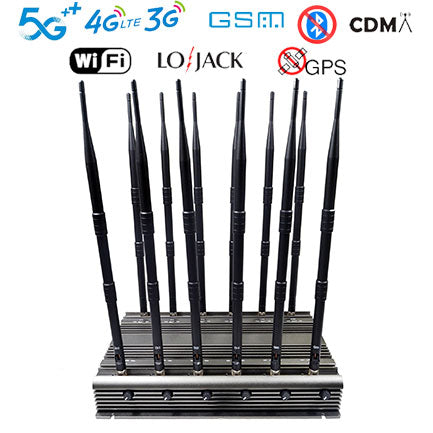Many customers hope that the 5G jammers they purchase has the function of penetrating walls. They even hope that the 5G signal jammer can directly penetrate the interference signal through two walls and still maintain sufficient strength. So, can such expectations be realized?
This requires distinguishing the material of the wall. If the interference signal of the 5G signal jammer encounters a reinforced concrete wall in the transmission path, the interference signal will be almost completely attenuated and reflected. Behind such a wall, the reception The interference signal received from the 5G signal jammer will be very weak, even close to 0. If it encounters a second wall, the interfering signal will be completely attenuated. For example: If there are no mobile phone signal amplifiers installed in the elevator shaft and underground parking lot of the building, there will be no mobile phone signal at all in these two places, because the outdoor mobile phone operator's base station signal cannot penetrate the steel bars at all. Concrete wall.
Let’s look at some other strong materials. If the interference signal of the 5G signal jammer is transmitted during the transmission process, it encounters walls made of wooden boards, or walls made of glass, ABS plastic, etc. These materials are not suitable for wireless signals. The attenuation effect of the 5G signal jammer is very limited. When the interference signal of the 5G signal jammer penetrates these materials, the signal strength error is very small. Even if there are two consecutive such walls, a strong interference signal can still be received.
Based on the above content, the issue of whether the interference signal of the 5G signal jammer can penetrate two walls has little to do with the 5G signal jammer itself, but should focus on the material properties of the wall.

